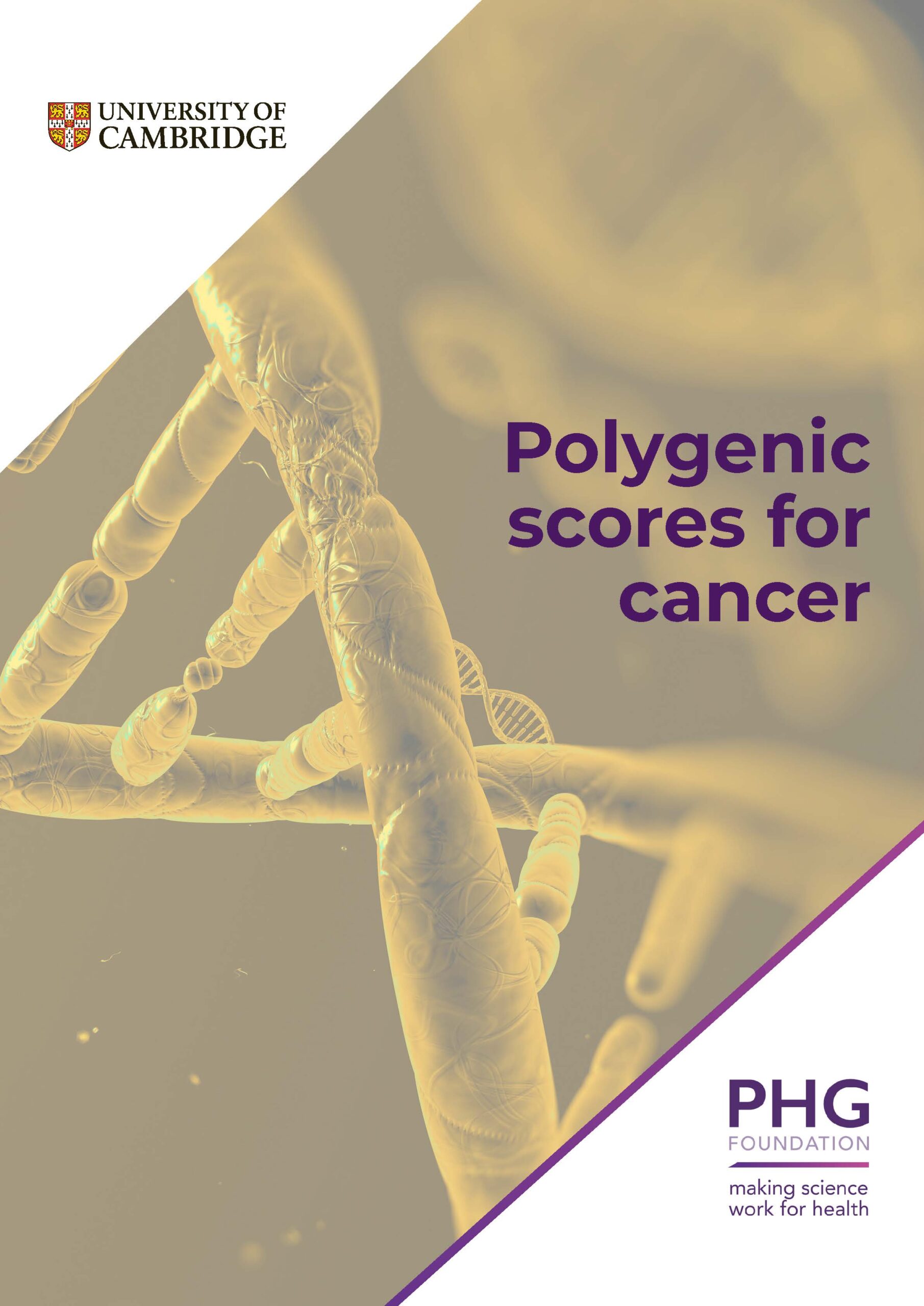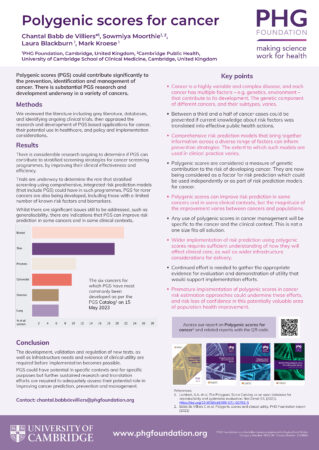Cancer is a major health problem, and new approaches to predicting, preventing and treating this disease are being investigated all the time. It is also a complex disease, as a person’s environment, lifestyle and their underlying genetics can all contribute to the risk of developing cancer.
Polygenic scores for cancer provides an overview of what is known about polygenic scores – when multiple genetic variants associated with a disease are combined – and what they could mean for cancer prediction, prevention and management. This accessible short report for health policy makers and other stakeholders also sets out the potential areas where implementation into health services is being considered and outlines current gaps in the scientific evidence.
Researchers are making progress in identifying the contribution these combinations of genetic variants may have to predicting risk of developing cancer. They are also generating evidence that, for some cancers, polygenic scores can be a tool to make more precise and personalised predictions to help manage cancer risk. But this is not the case for all cancers, and polygenic scores will not improve risk prediction equally for all cancers.
Risk prediction in cancer can have several different purposes, such as determining the risk of a cancer, how it may progress, and the risk of recurrence. In addition, risk prediction may be used within screening programmes to inform decisions such as the frequency and type of screening. Screening based on a calculated risk is referred to as stratified screening.
On current evidence, polygenic scores may only have value in specific cancers and in particular circumstances. There are gaps in the evidence that must be filled before policy decisions on their routine use in cancer prediction and management can be taken. Progress is being made to gather this evidence and is covered in our report. Efforts must continue to gather the appropriate evidence for evaluation, to demonstrate when and where polygenic scores are clinically useful, and to support effective implementation in health services.


